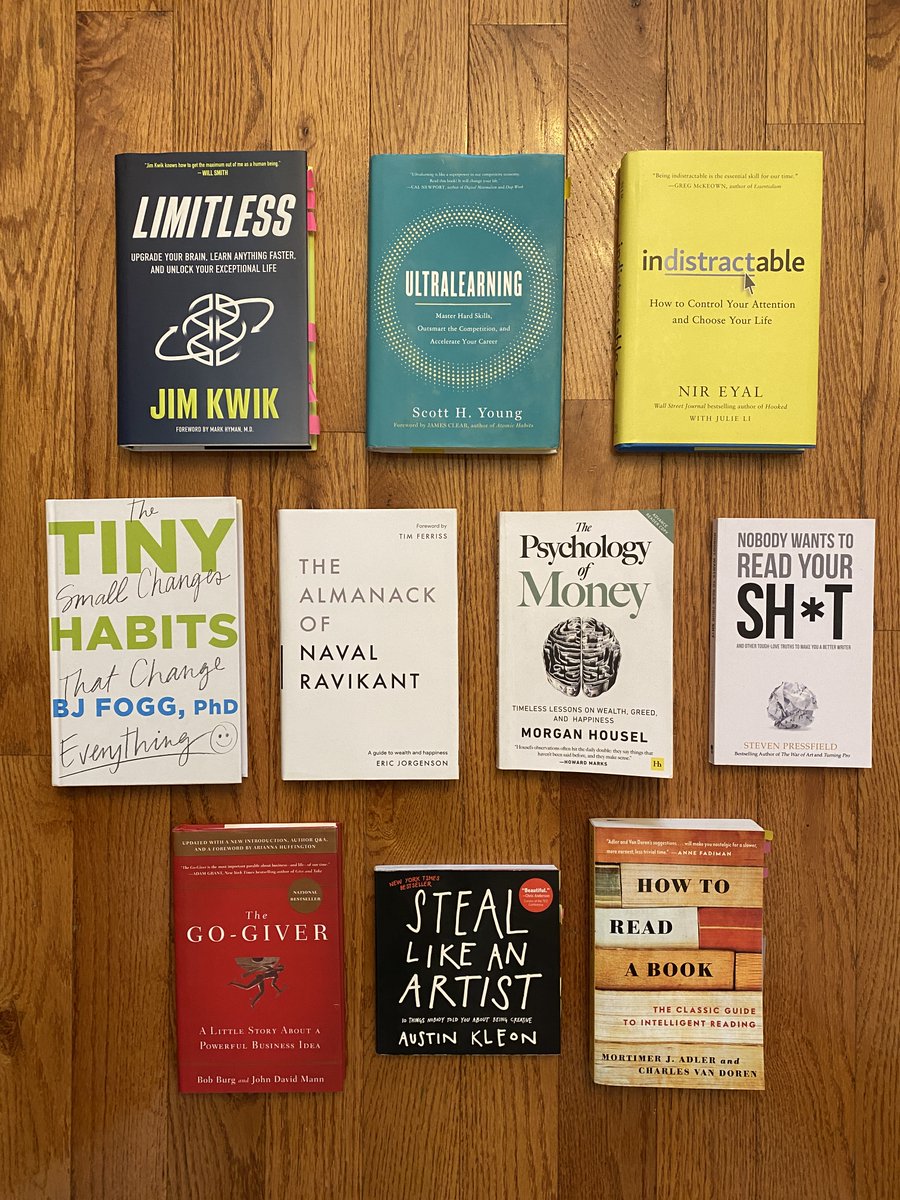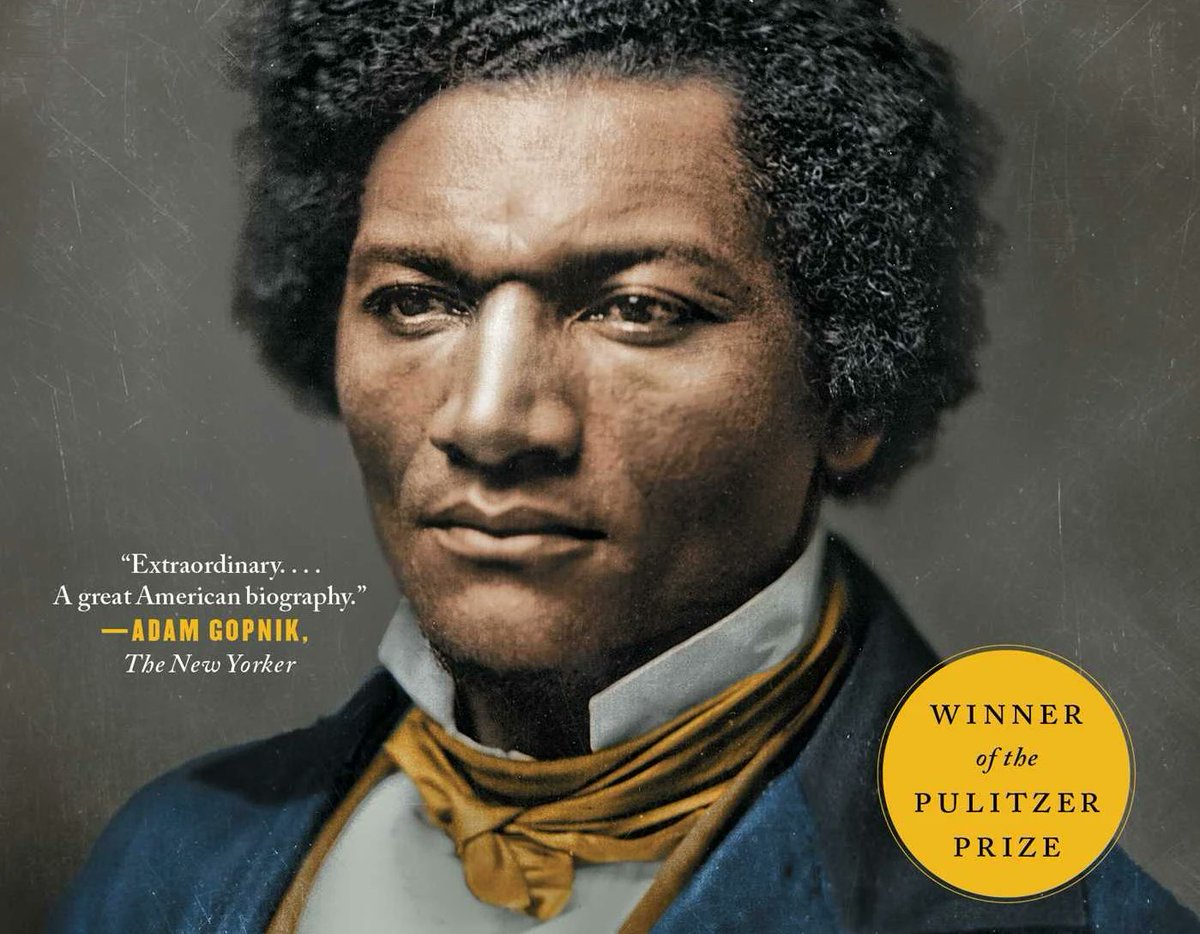
In a Reddit AMA, someone asked Elon how he's able to learn so fast.
His response?
"It is important to view knowledge as sort of a semantic tree--make sure you understand the fundamental principles, ie the trunk and big branches, before you get into the leaves/details." -Elon
His response?
"It is important to view knowledge as sort of a semantic tree--make sure you understand the fundamental principles, ie the trunk and big branches, before you get into the leaves/details." -Elon
"View knowledge as sort of a semantic tree..."
That got me thinking, and I realized that it's the same for books.
There are 3 types of books (at least when it comes to non-fiction):
• Trunks 🌳
• Branches 🌿
• Leaves 🍃
Here's what I mean...
That got me thinking, and I realized that it's the same for books.
There are 3 types of books (at least when it comes to non-fiction):
• Trunks 🌳
• Branches 🌿
• Leaves 🍃
Here's what I mean...
1) Trunk books 🌳
These books provide the general knowledge base around a subject. A 30,000-foot view of a subject in a sense.
Two history trunk book examples:
• "The Lessons of History" by Will & Ariel Durant
• "Sapiens" by Yuval Noah Harari
These books provide the general knowledge base around a subject. A 30,000-foot view of a subject in a sense.
Two history trunk book examples:
• "The Lessons of History" by Will & Ariel Durant
• "Sapiens" by Yuval Noah Harari
2) Branch books 🌿
These books dive deeper into the subject and perhaps cover a certain time period or event.
Two history branch book examples:
• Leningrad: The Epic Siege of World War II by Anna Reid
• An Army at Dawn: The War in North Africa by Rick Atkinson
These books dive deeper into the subject and perhaps cover a certain time period or event.
Two history branch book examples:
• Leningrad: The Epic Siege of World War II by Anna Reid
• An Army at Dawn: The War in North Africa by Rick Atkinson
3) Leaf books 🍃
These books go into a finer level of detail and can focus on a more specific time frame or a single individual.
Two history leaf book examples:
• Grant by Ron Chernow
• Frederick Douglas by David W. Blight
These books go into a finer level of detail and can focus on a more specific time frame or a single individual.
Two history leaf book examples:
• Grant by Ron Chernow
• Frederick Douglas by David W. Blight
You can apply the 3 books framework to any non-fiction genre.
Here's leadership:
🌳 = Leadership: Theory and Practice by Peter G. Northouse
🌿 = The 21 Irrefutable Laws of Leadership by John C. Maxwell
🍃 = Start With Why by Simon Sinek
Here's leadership:
🌳 = Leadership: Theory and Practice by Peter G. Northouse
🌿 = The 21 Irrefutable Laws of Leadership by John C. Maxwell
🍃 = Start With Why by Simon Sinek
Tip for identifying leaf books:
These books tend to consist of a single idea that is summarized in the book's title or can be summarized in a single sentence.
Ex:
"Start With Why" by Simon Sinek
• Start by explaining why you do what you do, then the how and what.
These books tend to consist of a single idea that is summarized in the book's title or can be summarized in a single sentence.
Ex:
"Start With Why" by Simon Sinek
• Start by explaining why you do what you do, then the how and what.
Bonus examples:
"Mindset" by Carol Dweck
• Have a growth mindset, not a fixed one.
"Choose Yourself" by James Altucher
• Don't wait for approval from gatekeepers, choose yourself and start doing what you love now.
"Mindset" by Carol Dweck
• Have a growth mindset, not a fixed one.
"Choose Yourself" by James Altucher
• Don't wait for approval from gatekeepers, choose yourself and start doing what you love now.
So if you're interested in exploring a new topic, think of the books you want to read in terms of trunks, branches, & leaves.
Might also help to create a mental visual of your knowledge tree & see how the different sections connect to one another.
What do you think of this tip?
Might also help to create a mental visual of your knowledge tree & see how the different sections connect to one another.
What do you think of this tip?
• • •
Missing some Tweet in this thread? You can try to
force a refresh






